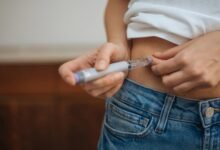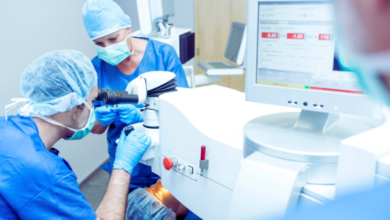Cape Town’s Rehab Centers: The First Step Toward a Drug-Free Life

About a million people across the world face the complex and extensive disease known as addiction. The disease extends beyond substance dependency because it conducts chronic brain effects which modify behavior and total wellness. The variety of addictive substances consists of alcohol alongside both legal medical prescriptions and street drugs which include heroin and cocaine. This universal affliction penetrates every region of the globe to affect a broad range of individuals. Addiction treatment centers together with rehabilitation facilities both located in Cape Town present individuals with an opportunity for healing and recovery.
Understanding Addiction
The compulsive behavior of substance use to toxic effects leads to a diagnosis of addiction. The drive to continue substance use originates from diverse components including genetics as well as living environments and traumatic experiences and mental health problems alongside individual ways of handling stress.
The main cause of addiction is chemical changes inside the human brain. The brain reward pathways become disrupted when people use substances because the dopamine and related neurotransmitters create pleasurable and relieving sensations. A dependency occurs in which the brain requires more substance to maintain its functioning while physical or psychological cravings emerge due to substance dependence.
Medical experts defined addiction as a treatable medical issue not caused by deficient willpower or moral weakness.
Signs of Addiction
Some addiction signs become difficult to identify because people who deny their addiction fail to acknowledge the problem. People should watch for the following red flags that signal addiction.
- Physical Symptoms: Physical indications include changes to appearance together with personal hygienic neglect and weight changes and bloodshot eyes and tiredness.
- Behavioral Changes: The person starts hiding their activities while withdrawing from social connections and pays less attention to duties while pursuing dangerous conduct.
- Mental and Emotional Symptoms: Individuals with addiction experience mental symptoms like depression alongside emotional symptoms that include anxiety and paranoia and irritability combined with mood swings as well as poor concentration abilities.
- Tolerance and Withdrawal: A person requires greater substance amounts to reach their high state and faces withdrawal symptoms after drug cessation attempts.
Professionals must receive help when someone demonstrates multiple indications of substance addiction. Early treatment intervention creates opportunities for stopping the issue from worsening and builds a better possibility of successful recovery.
The Importance of Drug Rehab and Addiction Treatment
The recovery process depends heavily on the work provided by drug rehabilitation centers. Treatment plans include substance detoxification which also supports patients in developing psychological and emotional addiction treatment and learning new wholesome ways to stay alcohol or drug free.
Twofold objectives exist in addiction treatment.
- Restoring Health:Medical detoxification together with substance dependence treatment is available at drug rehab centers to support people who experience physical addiction. Through detoxification patients can eliminate dangerous substances from their bodies along with managing the symptoms of withdrawal.
- Psychological Healing:Psychological Healing Needs Attention Because Individuals Who Suffer From Addiction Usually Also Experience Psychological Problems Like Depression Or Anxiety Or Trauma. Medical facilities that treat addiction through counseling and therapeutic methods address addiction’s fundamental reasons.
Types of Addiction Treatment
Different individuals require distinct treatment approaches because their recovery paths remain individual and personalized. Various approved approaches exist to help people successfully address addiction challenges.
1. Detoxification (Detox)
Detoxification marks the beginning of most rehab programs. Under medical supervision detox represents a process which helps people eliminate dangerous substances from their bodies. This treatment stage represents the most difficult phase since withdrawal symptoms tend to produce severe dangerous effects.
Medical staff members located at rehab facilities supervise detox patients throughout the process to provide safe medical care and ensure patients feel comfortable. The specific substance requires appropriate medications for treating withdrawal symptoms while lowering cravings and to stabilize patients’ physical state during detox.
2. Inpatient (Residential) Treatment
A residential rehab facility provides complete 24/7 medical care to patients who stay at their premises. Severe addicts and relapse-resistant patients need this highly intense treatment program.
The standard daily routine in inpatient rehab includes therapeutic sessions with group counseling along with bodily activities and educational workshops and family integration activities. An ideal supportive environment separates people from environmental triggers and stressors to help participants dedicate themselves fully to their recovery process.
3. Outpatient Treatment
People who participate in outpatient addiction treatment go to their therapy sessions while staying in their home environment. People with mild drug addiction or those who want supplemental care after finishing inpatient rehab normally find success in outpatient programs.
Patients operate through such programs by attending standard therapy sessions combined with support group meetings and vital life skills courses which run weekly. Through outpatient treatment people continue their school activities and family responsibilities and their professional duties beside getting help for their addiction issues.
4. Cognitive Behavioral Therapy (CBT)
The drug rehab sector uses Cognitive Behavioral Therapy (CBT) as a standard therapeutic method. When undergoing cognitive behavioral therapy people learn to identify mental processes which lead to addiction. Learning healthier ways to cope with thoughts and emotions enables people to break their addiction to drugs.
The rehabilitation centers use CBT therapy equally for their inpatient and outpatient programs so they specifically treat clients with secondary mental illnesses like anxiety and depression.
5. 12-Step Programs
The recovery process of addiction treatment relies heavily on programs under the 12-Step model including Alcoholics Anonymous (AA) and Narcotics Anonymous (NA). The programs offer members support through meetings led by peers who help each other by exchanging their stories while offering mutual encouragement.
The 12-step addiction recovery program teaches specific principles that include admitting powerlessness as well as making amends for past mistakes and seeking spiritual guidance. The recovery programs demonstrate their worth to numerous participants in their paths of recovery even though they do not match every person’s needs.
6. Holistic and Alternative Therapies
Traditional treatment methods find coexistence with holistic as well as alternative therapies in certain rehabilitation facilities. The treatment includes a combination of treatments that include acupuncture and yoga alongside meditation and art therapy along with mindfulness practices. The objective of comprehensive healing approaches includes recognizing spiritual, mental and physical elements within each person to establish complete recovery.
The healing methods assist patients in stress reduction and mental clarity while enhancing their general wellness which makes them appropriate for people beyond standard addiction treatment.
Drug Rehab in Cape Town
A number of reputable drug rehabilitation facilities operate throughout the culturally diverse city of Cape Town to support people in their recovery. South Africa must confront its special difficulties in fighting substance abuse which affect marginalized communities the most.
Cape Town’s rehab centers deliver multiple therapeutic services to accommodate different population sectors including various social groups and health profiles. Relief centers utilize evidence-based therapeutic approaches and humane care services to guide patients through addiction recovery while teaching them how to achieve successful sober living.
1. Personalized Treatment Plans
Drug rehab facilities throughout Cape Town dedicate attention to developing treatment strategies which fit each individual client’s needs. Each rehab establishment in Cape Town believes that addiction treatment needs to follow patterns matching each person’s unique experience through individualized treatment. The result-oriented treatment method increases the successful outcomes and sustained recovery of patients.
The development of treatment plans proceeds through complete evaluations that examine physical well-being along with psychological state and emotional condition together with the strength of social connections. Individuals obtain all essential tools for recovery assistance through personalized medical care which supports their journey toward rebuilding their entire life.
2. Luxury and Holistic Rehab Options
The city has both costly and upscale rehabilitation facilities that deliver premier centers coupled with whole-person comprehensive therapy. The luxury rehab treatment facilities use both conventional addiction medicine and unique practices which involve yoga practice combined with meditation together with nutritional therapy. The establishment seeks to develop a quiet environment for healing purposes alongside therapy for the underlying causes which drive addiction.
Luxury rehab facilities based in Cape Town offer patients breathtaking scenic views that provide rest and recovery opportunities while leading patients into a healing journey. People tend to prefer luxury facilities because their tranquil surroundings together with their holistic methods enhances the recovery experience at a higher cost.
3. Accessibility and Affordability
Luxury rehab centers in Cape Town provide extensive treatment services but at the same time South Africa offers various affordable rehabilitation centers which welcome all social classes. The treatment facilities implement policies that allow sliding scale fee structures combined with insurance acceptance which helps patients who need help obtain essential care.
Certain rehab centers develop collaborative relationships with community networks to organize outreach initiatives that serve people without sufficient funds to obtain rehab services. The dedication to accessibility enables every person facing addiction problems to access needed support.
4. Cultural Sensitivity
Many rehab centers across Cape Town focus on delivering treatment services that demonstrate understanding and respect toward all cultures and backgrounds of their patients. The rehabilitation facilities of Cape Town develop programs that respect each person’s cultural background and spiritual beliefs for comprehensive care delivery.
Such a method provides essential support to people who face marginalization or misunderstanding while receiving mainstream treatment. The recovery path becomes more rewarding when health services use culturally sensitive treatment methods to provide constant support and comprehension to patients.
5. Aftercare and Ongoing Support
The rehabilitation process continues indefinitely after relapse according to Cape Town’s rehab facilities because they recognize the significance of sustained aftercare support. Rehabilitation facilities maintain their support for patients after recovery by providing outpatient programs and 12-step group meetings as well as follow-up therapy sessions. Such programs assist people to reenter society while preserving their sobriety status.
The process of aftercare stands as essential because it protects users from relapsing while a solid support network makes substantial improvements for lasting recovery.
Conclusion
Patients who receive proper treatment alongside supportive services can achieve recovery from their complex addiction disease. Drug treatment facilities running in Cape Town deliver specialized therapy options to fulfill the requirements of every individual client.Rehab Cape Town integrates clinical medicine with psychological techniques and natural health treatments to create their treatment approach. The tools needed for successful addiction recovery along with achieving a sober fulfilling life can be obtained through medical detoxification and therapy and group counseling and holistic methods at rehab centers.
To the addict, Cape Town is a beacon of hope, a city in which healing is not just a viable option, but a reachable aspiration. Rehab cape town facilities offer a controlled and caring environment to many people, helping them focus on Pornography addiction as well as overall healing. These clinics enable individuals to concentrate on recovering and reconstructing their lives.
Frequently Asked Questions (FAQs) About Addiction Treatment and Drug Rehab in Cape Town
1. What is addiction treatment?
Every addiction treatment program integrates medical care together with psychological therapy to stop substance abuse alongside teaching appropriate alternative coping behaviors.
2. How long does drug rehab take?
Most clients need between 30 and 90 days in inpatient rehab programs. Clinics rarely have set lengths for treatment facilities because healing times vary between each individual.
3. What happens during detox?
Medical supervision with knowledge-based management of withdrawal symptoms usually accompanies substance elimination from the body.
4. Is drug rehab in Cape Town effective?
The effectiveness of Cape Town Rehabilitation depends on patients’ dedication to treatment which includes personalized care programs.
5. What should I expect during rehab?
Treatment at this facility follows a clear program which combines detoxification services with therapy sessions and post-treatment planning to help you recover effectively.
6. Will I relapse after rehab?
Recovery slips sometimes occur yet this does not indicate that therapy was ineffective. Proper long-term recovery requires sustained support and care following treatment.






